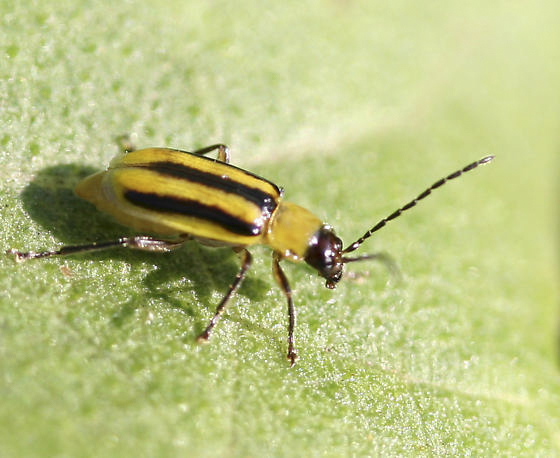A pest that infested Fraser Valley corn fields in 2017 has made an appearance in the North Okanagan.
The BC Dairy Association recently alerted members to the discovery of Western corn rootworm on farms in Armstrong, Enderby and Salmon Arm by a seed industry representative in August.
The province is following up to determine the extent of the pest and its impact.
“We have conducted limited surveys in collaboration with consultants in the North Okanagan since the detection in August,” says ministry entomologist Susanna Acheampong.
A ministry factsheet says Western corn rootworm (Diabrotica virgifera) is a major corn pest native to the Americas. It has been an issue in the US Midwest for over 50 years, costing growers more than $1 billion in corn yield loss and control measures annually.
The impact in Canada, where it is present in Ontario and Quebec, is unknown. The last major outbreak in BC occurred in 2017, following a detection in the Fraser Valley in August 2016.
“The pest has caused extensive localized damage on some farms in some areas but we do not yet have information on total affected acreage,” notes Acheampong.
The ministry will survey for the pest in 2024 in order to understand its impact in the North Okanagan. Growers who would like to participate can contact Acheampong at [susanna.acheampong@gov.bc.ca].
Several producers contacted in the North Okanagan reported hearing about the pest but have not detected any issues with their own crops, which can look weak or drought-stricken when infested.
“I’ve not seen any sign of it,” says Henry Bremer, who cultivates about 200 acres of corn at Cliffview Dairy Ltd. in Enderby.
Rootworms lay their eggs in the soil where cold temperatures allow them to complete development and hatch in late May or June.
The larvae then feed on brace roots of corn and pupate in the soil around the corn plants. A week later, adult beetles emerge to feed.
Producers who discover larvae on plant roots should plan to take management steps in affected fields the following season.
Corn rootworm has no other significant host plants so crop rotation is effective at breaking the lifecycle of the pest.
When crop rotation is not possible, the application of insecticide at the time of planting and/or planting a corn hybrid with resistance to Western corn rootworm is recommended.


 Young ranch leaders selected
Young ranch leaders selected